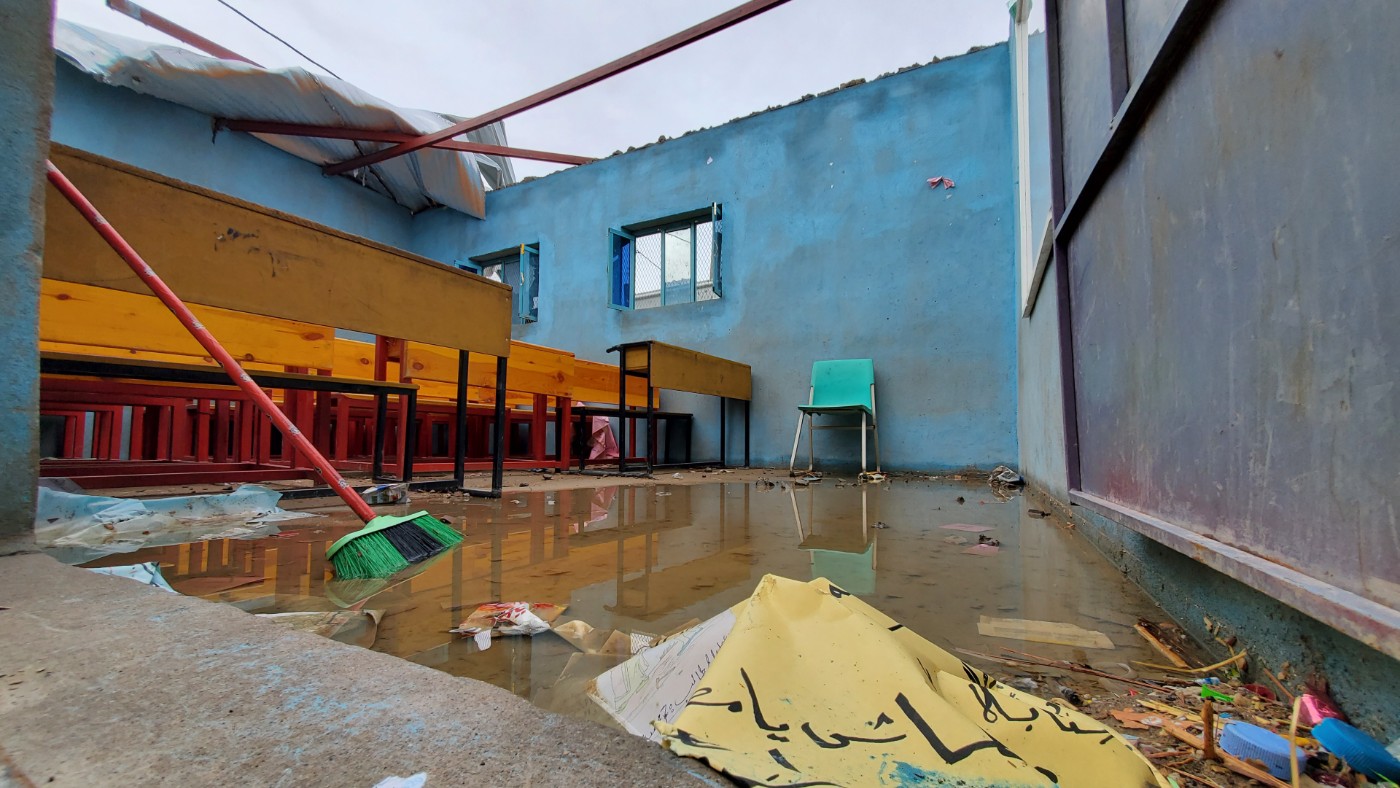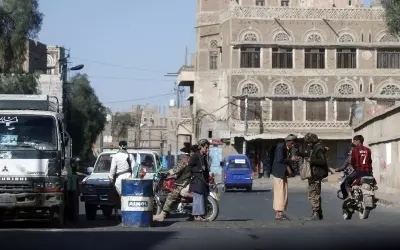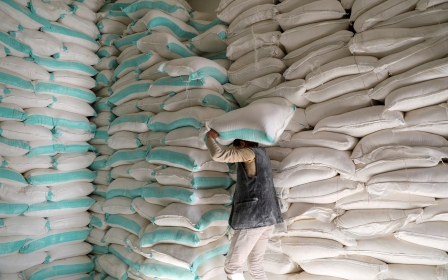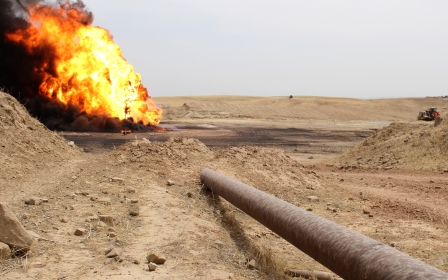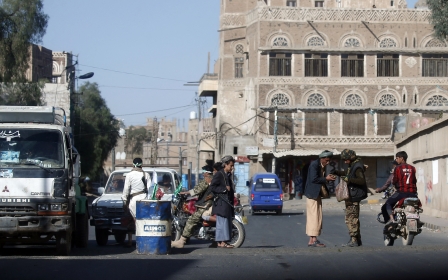Yemen's displaced people move from war to flooding in devastated Marib
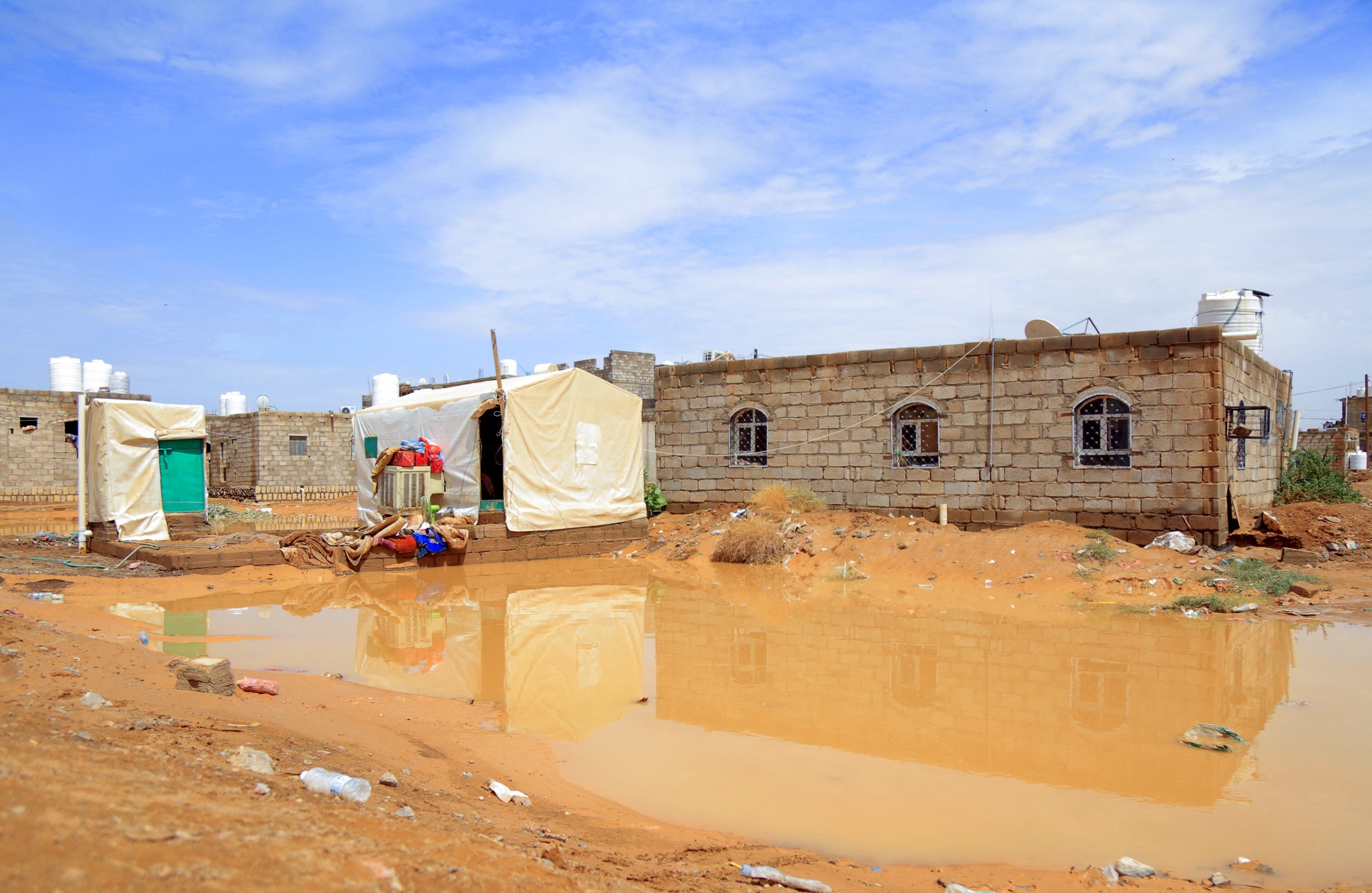
Surveying the wreckage of his makeshift home at a camp for internally displaced people in Marib province, central Yemen, Mohammed Ayedh drew a comparison between a land torn apart by war and a land washed away by flooding.
“It was dangerous to flee our homes amid battles five years ago, but we managed to with some basic things,” Ayedh, who is in his 50s, told Middle East Eye. “Today, floods made it impossible for families to flee their homes with basic items. They were washed away with their homes.”
Ayedh was speaking as a second day of destruction hit Marib, with thousands of shelters for displaced people swept away after torrential rain triggered flash floods and strong winds battered camps across the province.
On Sunday, Yemen’s government appealed for emergency humanitarian assistance for those thousands of internally displaced people affected by the flooding.
'I wasn’t aware it would be a disaster but in minutes it became one and we couldn’t leave our homes'
- Mohammed Ayedh, flood victim
“It was after sunset when floods arrived heavily at the camp. I wasn’t aware it would be a disaster but in minutes it became one and we couldn’t leave our homes,” Ayedh, who lives alongside thousands of families settled from across Yemen in a huge camp near Marib city, said.
New MEE newsletter: Jerusalem Dispatch
Sign up to get the latest insights and analysis on Israel-Palestine, alongside Turkey Unpacked and other MEE newsletters
“Water entered our homes and damaged everything, and we took our children and ran away from the camp. Those who are lucky got out safely and others were washed away and died or were injured.”
So far only one person in Marib is reported to have died in flooding over the weekend, which has displaced thousands. Last week, floods, landslides, and storms killed 16 people across Yemen.
The city of Marib is a safe haven for over two million Yemenis who have sought refuge from the war between the Saudi-led coalition and the Iran-aligned Houthi group, which has been in a state of ceasefire since April.
Ayedh lives together with six other family members, none of whom were injured. But his home was damaged and the family lost a number of key possessions, meaning they are now in dire need of basic items.
“For me, it is a big problem to lose shelter and food that I got from organisations, as I’m a jobless person and can’t buy new food or any other items,” he said.
Ayedh described the floods as the worst thing he had witnessed in his life and said he now hoped to find shelter for his family away from the camp, which is prone to flooding.
“We know that our camp is in the way of floods, and this isn’t the first time we have been attacked by floods. But we had no other choice. I call on organisations to provide us with a safe shelter where we can sleep safely,” he told MEE.
The human cost of the floods
The second half of July was characterised by heavy rains and widespread flooding across Yemen.
These left nearly 20 people dead and hundreds displaced and injured, while many buildings - including schools - were destroyed, according to the Food and Agriculture Organisation of the United Nations (FAO).
The UN Office for the Coordination of Humanitarian Affairs (OCHA) said that between 13 and 15 July, heavy rains and strong winds hit the provinces of Marbi and al-Jawf.
In Marib, floods damaged shelters at 54 displacement sites in Marib city, Marib al-Wadi, and Sirwah districts, affecting at least 10,000 displaced families.
Before the current truce, displaced families in Marib didn't feel safe. Fighting was ongoing near Marib city and they were worried it would reach their camps.
But following the nationwide ceasefire on 2 April, they began to feel more secure. And then came the floods.
“Displaced families are miserable, first we fled our homes and then we kept fleeing fighting from one camp to another,” Abdulrahim Jaber, a displaced person in his 50s, told MEE in Marib.
“As soon as the truce started, we felt happy that there was no threat to lose our lives,” he said. “But that didn’t continue for long, and it is floods that are threatening us now.”
Out of an estimated 25,591 families who have experienced displacement in 2021, nearly 13,000 families have been displaced in or to Marib province, according to the International Organisation for Migration (IOM).
With an estimated four million internally displaced people, Yemen is home to the fourth largest displacement crisis in the world.
Jaber lost his shelter, and he feels that it isn’t safe now to live in the camp anymore, so he moved to live with relatives in another camp. “It seems that bad luck is chasing us and there is no-one to help us with anything as we are in need now more than before,” he said.
Yemen continues to face one of the world’s worst humanitarian crises, with around 20.7 million people in need of some form of humanitarian assistance or protection, according to OCHA.
Urgent response called for
An aid worker in Marib confirmed that some organisations had started an emergency response to the flooding.
“NGOs started to help displaced families with mattresses, blankets, and kitchen items, but frankly speaking that isn’t enough and we need to work hard to help more families with more items,” he told MEE on condition of anonymity.
“It isn’t realistic to help someone who has lost everything with mattresses and blankets, but it is better than nothing and this is what we can do and it depends on the funding that NGOs get.”
The Executive Unit in Marib, a governmental body that coordinates the work of aid organisations, called on them to intervene to help the displaced families affected by the heavy rains and floods.
Mohammed Ayedh, a displaced person who lost his home, confirmed that he had not received any support until now, but had heard that some organisations were helping those affected by the floods.
“Thousands of families lost their homes and organisations help only dozens or hundreds of people, so they haven’t reached me yet. But I hope they will. Providing us with a safe place to live is more important than helping us with shelter in the same dangerous area.”
Middle East Eye delivers independent and unrivalled coverage and analysis of the Middle East, North Africa and beyond. To learn more about republishing this content and the associated fees, please fill out this form. More about MEE can be found here.


